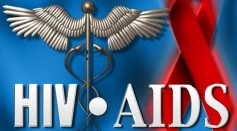medicine

First-Born Babies Have Higher IQ & Intelligence Than Their Younger Siblings

Cancer Research UK Awards Cambridge Scientists £40M To Further Research
The Lasting Legacy of Tattoos? Perhaps a Nasty Skin Condition…
Breast Cancer Could Be “Stopped in its Tracks” by a New Technique

The Investigation into whether Johnson & Johnson Knew about their Harmful Uterine Device
Could Ecstasy Be The Next Big Anti-Anxiety Medication?
Boning Up Against Breast Cancer: How It Can Alter Its Structure to Help It Spread

Trial Suggests HIV Drugs Should Begin At Diagnosis
Ecstasy for the Terminally Ill? Will This Party Drug Prove Effective Against Anxiety?
Fighting Fire With Fire—Viruses to Combat Disease
Moderate Drinking May Damage Aging Hearts
Skin Cancer Treated with...Herpes

Study Finds Many Sunscreen Products Not Doing Their Job
Johns Hopkins Launches First Ever Center to Focus on Lyme Disease
Most Popular

How Technology Is Changing the Real Estate Industry?

Nikolay Karpenko Biography, Photo, Career, Accomplishments

How a Plant-Based Diet Can Protect Against Breast Cancer: Insights from Nutrition Research

The Role of AI in the Next Generation of Logistics: Insights from Tobias Waldhecker






